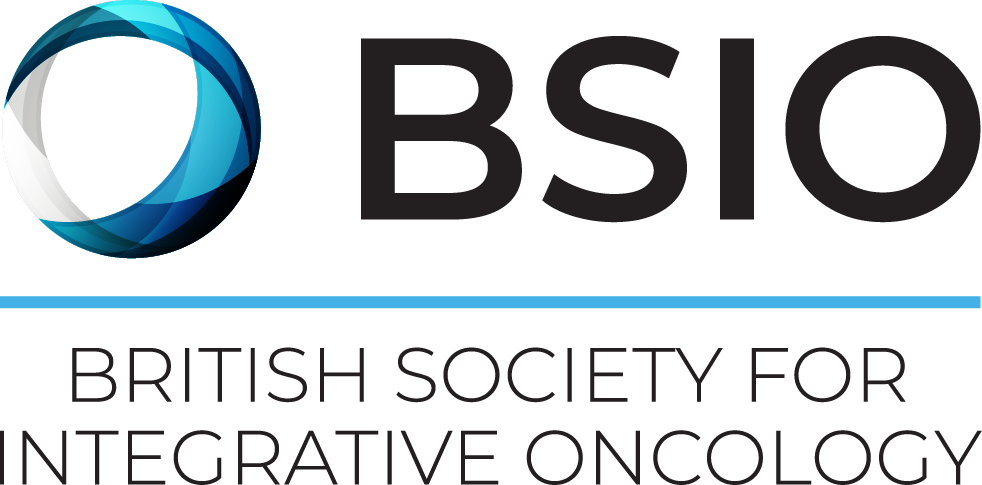The Case for Integration of Health Coaching within Integrative Oncology: Needs, Outcomes, Models and Standards
A collaboration between the British Society of Integrative Oncology and the Society of Integrative Oncology’s Health Coaching Special Interest Groups has seen the publication a review paper ‘The Case for Integration of Health Coaching within Integrative Oncology: Needs, Outcomes, Models and Standards’, in Springer Nature, Current Oncology Reports.
Integrative oncology recognises the need for whole-person, person-centred care that addresses not only the physical, but also the emotional, social, and spiritual dimensions of cancer. Health coaching is emerging as a vital, evidence-based intervention within this framework, self-empowering patients, supporting caregivers, and strengthening cancer and oncology care services.
Key findings from the review indicate that sufficient evidence exists to integrate health coaching as a core component of high-quality, compassionate cancer and oncology care.
Briefing: Health Coaching in Integrative Oncology
1. Purpose & Rationale
The review advocates integrating health coaching into oncology care to strengthen outcomes for patients, caregivers, healthcare professionals, and oncology services
Health coaching is defined (by SIO & BSIO Special Interest Group, 2025) as an evidence-based, non-clinical discipline that empowers individuals across physical, emotional, social, and spiritual domains, enabling navigation through trauma, loss, and life transitions
2. Evidence of Benefit
Systematic reviews show that health coaching can reduce anxiety and depression in cancer patients—conditions associated with higher recurrence and mortality risk.
Multiple studies illustrate positive outcomes: improved psychological distress, physical activity, weight control, reduced fatigue, enhanced quality of life, emotional and physical functioning—in both individual and group formats, including virtual delivery.
Broader evidence, including over 480 articles and 140 randomized controlled trials, supports the expanding impact of health coaching in healthcare generally.
3. Operational Models & Delivery
Health coaching is delivered across diverse settings:
Embedded in multidisciplinary clinical teams (e.g., integrated into patient records and case discussions)
Offered free at point-of-care via charitable organizations or community cancer centres
Available through group and virtual formats, providing scalable, flexible options where one-to-one support isn't feasible.
Delivered by independent practitioners, holistic clinics, and corporate-wellness programs—also extended to support oncology professionals for burnout prevention and self-care.
4. Role Across the Cancer Journey
Health coaching offers longitudinal and client-centred support spanning from diagnosis, treatment, survivorship, to end-of-life care and bereavement.
It addresses seven key domains aligned with NCCN supportive care guidelines: psychological support, communication facilitation, patient empowerment, needs assessment, mind-body integration, self-help/wellness strategies, and health literacy promotion
Especially valuable at vulnerable moments—e.g., awaiting results, diagnosis, recurrence, managing caregiving, reintegration, bodily changes, mortality—helping patients express fears and develop adaptive self-management
5. Training, Standards & Professionalisation
Health coaching is a defined profession, supported by global standard-setting bodies: AHNCC, NSHC, HCA, NBHWC, UKIHCA, HCANZA, SBHS.
In 2019, the AMA recognized health coaching roles through Category III CPT billing codes and developed implementation toolkits for physicians in the U.S.
6. Economic & System Benefits
While direct economic analyses in oncology are still limited, evidence from other health sectors (e.g., diabetes) suggests reduced healthcare utilization, improved chronic disease management, and enhanced patient outcomes—indicating likely similar benefits if implemented in cancer care.
7. Limitations & Future Recommendations
There remains a relative paucity of quantitative oncology-specific outcome studies and cost-effectiveness analyses.
Authors recommend as next steps:
Raising awareness among oncology professionals,
Launching pilot projects,
Standardising practice and competencies for specialist cancer coaching,
Conducting rigorous research,
Securing sustainable funding to support integration
